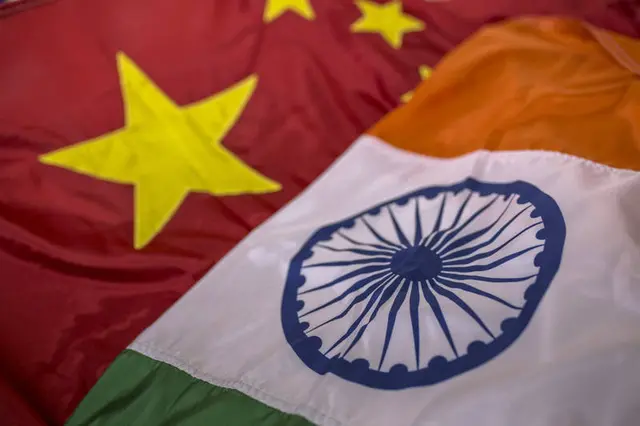Author: Prof. Engr. Zamir Ahmed Awan, Sinologist (ex-Diplomat), Editor, Analyst, Non-Resident Fellow of CCG (Center for China and Globalization), National University of Sciences and Technology (NUST), Islamabad, Pakistan. (E-mail: [email protected]).
India used the anti-China card twice. In the 1960s, the difference between Russia and China rose to severe tension, and India availed the opportunity to penetrate the Russian block. India-Russian signed numerous agreements and memorandum of understandings with Russia, covering almost all sectors, including Education, Science and Technology, Economic, Defense, and strategic.
India projected itself as anti-China and gained Russian sympathies. Earned tremendous benefits, gained trade concessions, attracted Russian investments, sent its youths to Russian Universities and Research institutes, transferred technology, acquired weapons, and the defense industry, and many other intangible benefits.
Russia extended political and diplomatic support to India and protected Indian interests in the UN and International Community. Russia up-lifted India to counter China and believed that India might play a role in the Russia-China conflict. Unfortunately, India used all support gained from Russia against Pakistan and divided Pakistan into two pieces, turning West Pakistan into Bangladesh, with Russian backing.
The second time, India used the anti-China card to gain American sympathies. During the last four decades, China has witnessed miraculous developments, and its Economy kept on rising to the third-largest Economy in 2006 and second-largest Economy in 2010. China is poised to surpass the American Economy soon after catching the US economy.
Indeed, American did not like any other country to replace him. Then, the US launched its anti-China campaign, including Trade war, Blame game, bashing China, strengthening anti-China alliances, etc. India availing this opportunity, openly declared anti-China sentiments and attracted American attention.
After intensive marketing and lobbying, India finally convinced the American to include him into the American club. The US is generously helping India, offered him market access, prioritized investment, transferred technology, opened doors for Indian nationals to American Universities and Research Institutes. The US opened jobs for Indian citizens, the flow of intellectuals, scientists, and youth is enhanced. The US is providing hi-tech, primarily, defense technologies, and advanced weapons were supplied to India. The US and India signed numerous agreements and pacts covering all aspects of cooperation, especially four Defense and strategic relations agreements.
The US is supporting India diplomatically and politically in the UN and international organizations. The US is helping India so generously that India has become the largest beneficiary of American assistance after the Jewish State of Israel. The US is assisting India to rise against China, counter China, contain china, and resist China’s rise.
But, unfortunately, India is not conceiving in the same manner, how the US is thinking. India is gaining all support from the US to strengthen itself to counter Pakistan. The US policymakers failed to judge Indian character and nature. Based on past experience, one can conclude that India is an opportunist nation and not sincere with any other country. Despite tremendous assistance from the Russian, India cheated them. It is simple to understand that Indians are milking the US as much as possible but will not meet American expectations.
In Indian genes, it is to use others as long as possible, then turn their face once they found no longer beneficial. Although China tried its best to please India and extended hands of cooperation and friendship, India always considered its benefits, not the sincerity. India is opposing Chinese mega initiative of BRI but is one of the beneficiaries of AIIB. India joined BRICS, SCO, ASEAN, SARC, but never fulfilled its commitments, and always looking forward to its benefits and opportunities. Even India refused to sign RECP, keeping its options open to signing similar agreements with the EU and the US.
It is time for Asian nations and the whole world to understand Indian nature and avoid being bitten again and again.
(ASIA PACIFIC DAILY)
 简体中文
简体中文

